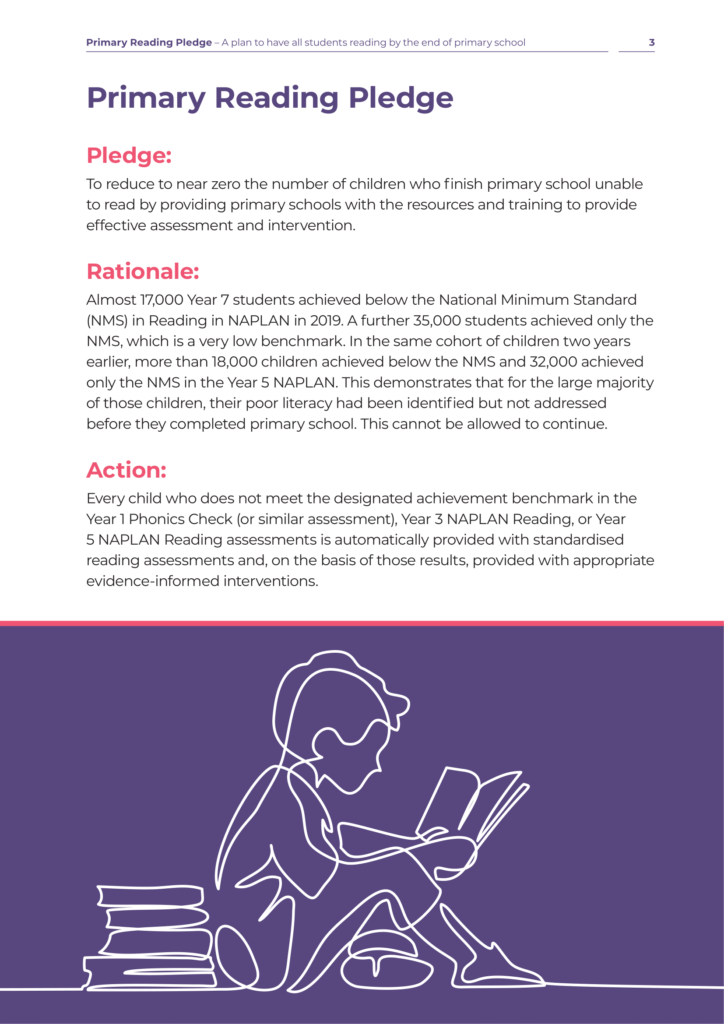Five From Five, AUSPELD and Learning Difficulties Australia have collaborated to create an evidence-based framework for schools which aims to dramatically reduce the number of children who finish primary school unable to read.
The pledge aims to ‘reduce to near zero the number of children who finish primary school unable to read by providing primary schools with the resources and training to provide effective assessment and intervention.‘

The rationale behind the pledge is almost 17,000 Year 7 students achieved below the National Minimum Standard (NMS) in reading in NAPLAN 2019. A further 35,000 students only met the NMS.
The pledge outlines the need for primary schools and systems to:
- Ensure that ALL children receive evidence-based instruction within the classroom. PLD is listed as one of the recommended evidence-based programs on page 17 of the Primary Reading Pledge.
- Adopt an evidence-based approach to intervention that gives ALL children the high-quality instruction that they need to learn to read.
- Systematically support early identification. Typically, difficulties in the acquisition of literacy skills need to be identified and supported much earlier than what is currently occurring. The introduction of a national assessment such as the UK Phonics Check would assist at a system level in the identification of students who require help and more importantly the schools which are not effectively implementing evidence-based instruction within their school. PLD supports the introduction of the UK Phonics Check within Australia as a tool for early detection of phonic knowledge (sound-letter knowledge) and as part of a Structured Synthetic Phonics (SSP) approach to teaching literacy. As Dr Lorraine Hammond, LDA president, reminds us, “If you don’t properly measure something, you can’t properly manage it.”
- Utilise standardised screening assessments to determine the sub-skill deficits that underlie a child’s reading difficulties.
It is the responsibility of governments, non-government school governance authorities, and school leadership to ensure that teachers are equipped with the resources and knowledge to achieve this critically important goal.
Show your support by adding your name to the list of people who support an evidence-based action plan to get all children reading by the end of primary school by signing the pledge and follow #primaryreadingpledge on social media.



 print
print